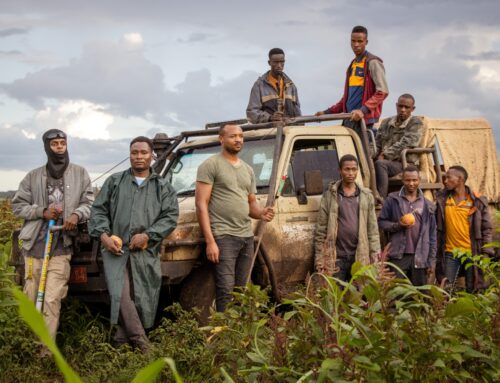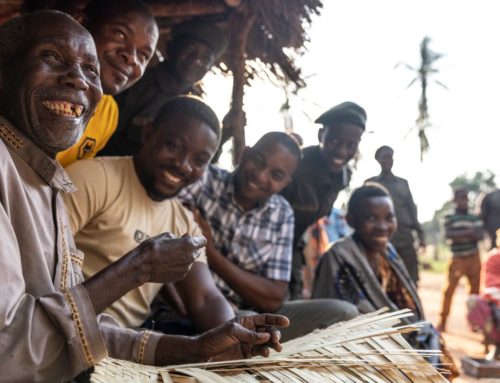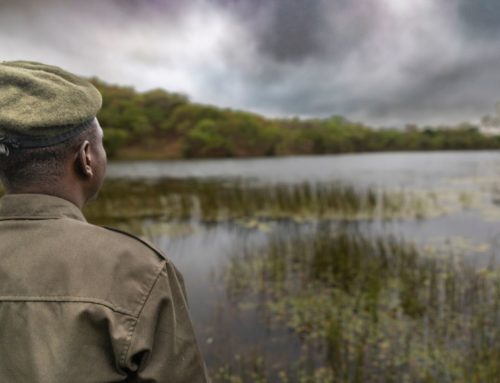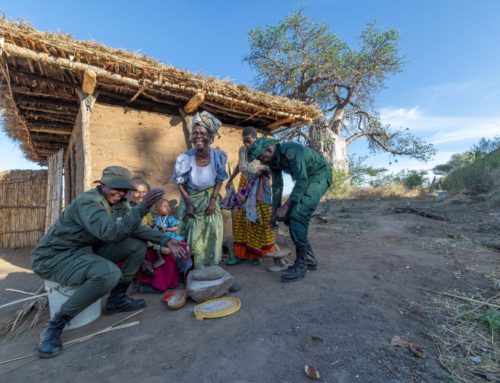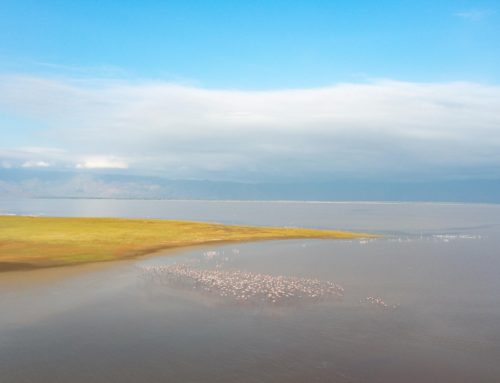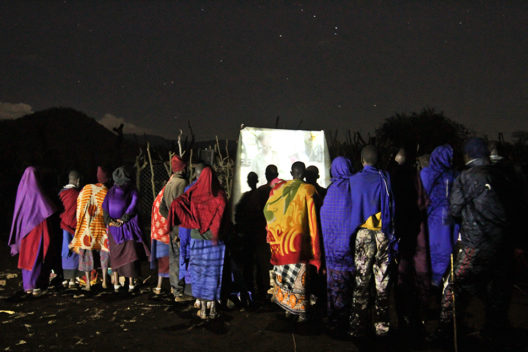
A recent month-long film roadshow helped spread awareness and foster dialogue with Randilen Wildlife Management Area (WMA) communities in rural Tanzania. Locally-produced, and including influential community leaders, the film helped educate locals about Randilen WMA’s achievements, function and its challenges along the way. Screenings were backed up with question and answer sessions, fostering a growing dialogue between communities and Honeyguide.
After a month of planning and groundwork, Honeyguide’s screening team took their film to rural communities from Engasit village to Lengoolwa. The team of one event manager, a film operator, two data collectors, and a driver, used the film and follow up discussions to educate the village communities about the WMA, and answer their questions about how it affects them locally.
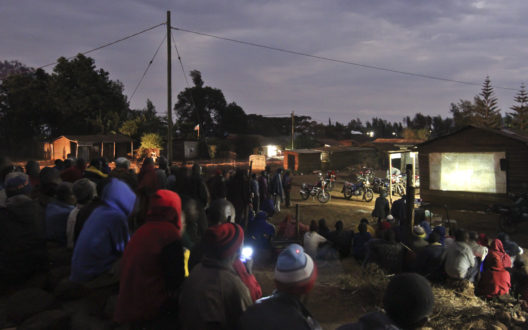
Community gathered for screening at Randilen WMA
Running from the 23rd of March to the 19th of April, the film was screened 36 times in 8 villages, reaching 7 294 locals adjacent to Randilen WMA. The process involved survey questions asked before each screening. After the film was shown, follow-up interviews and group discussions were held. The viewers were very pleased to see their local leaders in the video, giving them a sense of ownership in Randilen WMA.
“I always thought WMA was Mzungu’s property, but now I know I’m the owner.” one of the locals said.
Through the forums of group discussion and post-survey questionnaires, viewers were happy to openly speak up on the film’s topics, including the new climate-resistant breeds of cattle the film introduced. Encouragingly, many were willing to reduce their large numbers of livestock to smaller, healthier herds of these better breeds, able to withstand long drought and produce higher milk yields.
“I now prefer to have fewer cattle but stronger ones.” Said a local Maasai.
Four village leaders asked for repeated film screenings, as they felt the message was vital for every member of their communities.
Running the screening was an expensive exercise, but worthwhile in spreading knowledge to remote villages about conservation, income distribution, and the benefits it holds for their livelihoods in Tanzania’s fastest growing WMA. Honeyguide firmly believes the art of film is a key tool in changing community behavior.

